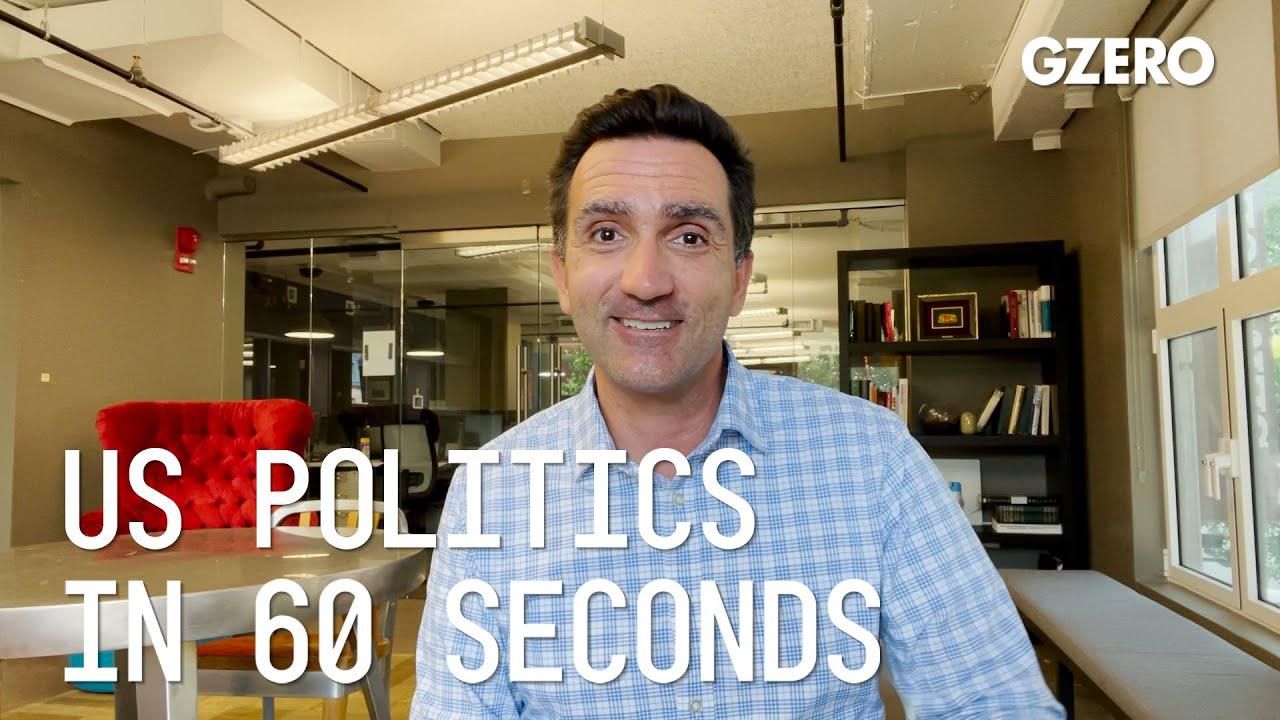US Politics In 60 Seconds
Biden team extends eviction moratorium despite SCOTUS ruling

Activism Extends Eviction Moratorium | CDC Authority Weakens | US Politics In :60 | GZERO Media

Jon Lieber, Managing Director of the United States for Eurasia Group, shares updates on recent COVID-19 policy developments:
The Biden administration extended an eviction moratorium even after the Supreme Court said they couldn't, what's next?
Well, the CDC imposed a nationwide eviction moratorium in light of increased risk from evicted people because of the coronavirus pandemic. The Supreme Court in June ruled that they (CDC) overextended their authority in doing so and mandated that the moratorium expire on schedule in July. A group of progressive activists weren't happy about this and raised a huge stink in Congress, but Congress recessed for their August vacation before they could solve the problem, putting big pressure on President Biden to extend the moratorium even though he said he didn't think that it would pass constitutional muster. The CDC did it anyway, extending the moratorium until October 3rd, which is a time that's short enough to probably avoid it being overturned by lawsuits, but long enough that Congress has time to figure out how to either extend it on a bipartisan basis or put more money into a rental assistance fund that few people have taken advantage of so far. This whole incident shows the power of progressive activists in the Biden administration who were able to elevate the profile of this issue and potentially prevent millions of people from losing their homes this summer.
The CDC recommended indoor masking even for vaccinated people, but few jurisdictions are following suit. What gives?
Officials at the CDC are very worried about the spread of the Delta variant of the coronavirus, which they say is more infectious and spreads more easily, including from vaccinated people to the rest of the population. CDC guidance now says that areas where there's significant or high levels of transmission should wear masks while they're indoors. But very few jurisdictions are following suit, with only a handful of states that have mask mandates not creating exemptions for vaccinated people. After a year of mixed messages and reversals from the CDC, it looks like some of their authority to deal with and be listened to in the pandemic has gone away, which could be a very big problem for future public health crises. Even the Biden administration went out of their way to counter the message, the implicit message from the CDC that vaccinations were not effective at stopping the coronavirus, by emphasizing the 164 million Americans who are fully vaccinated and the incredibly rare number of breakthrough infections there are in that group. The Biden administration also urged Americans to get vaccinated and they really want to hit this message that once you're vaccinated, you're protected and in theory, you no longer need masks. Vaccines are going to be the only way out of this pandemic for President Joe Biden, these mask mandates aren't effective anymore, partially because people aren't following them. And the CDC is going to have a very tough time going forward.
Prime Minister Narendra Modi, with President of the European Council António Luís Santos da Costa, and President of the European Commission Ursula von der Leyen, at Hyderabad House, in New Delhi, India, on Jan. 27, 2026.
On Tuesday, the world’s largest single market and the world’s most populous country cinched a deal that will slash or reduce tariffs on the vast majority of the products they trade.
Canadian Prime Minister Mark Carney has repeatedly tussled with US President Donald Trump, whereas Mexican President Claudia Sheinbaum has tried to placate him. The discrepancy raises questions about the best way to approach the US leader.
10,000: The number of Hamas officers that the militant group reportedly wants to incorporate into the US-backed Palestinian administration for Gaza, in the form of a police force.
Walmart is investing $350 billion in US manufacturing. Over two-thirds of the products Walmart buys are made, grown, or assembled in America, like healthy dried fruit from The Ugly Co. The sustainable fruit is sourced directly from fourth-generation farmers in Farmersville, California, and delivered to your neighborhood Walmart shelves. Discover how Walmart's investment is supporting communities and fueling jobs across the nation.